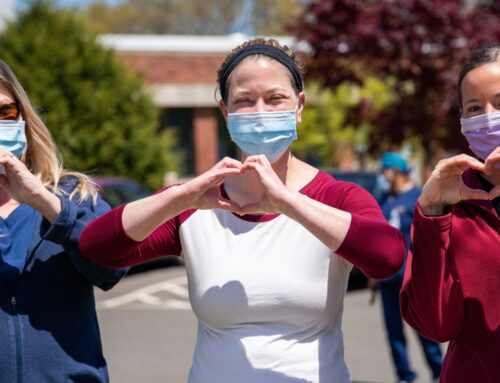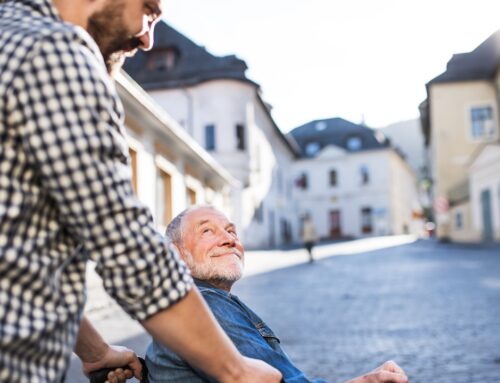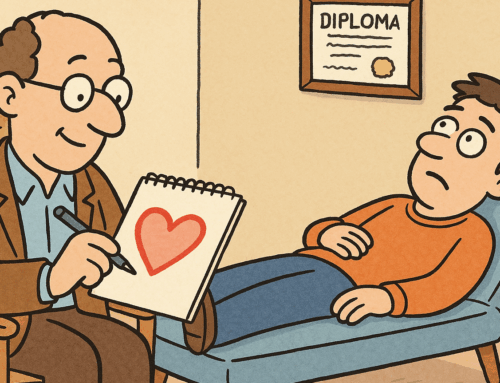Neurobiology Makes a Kind Act Feel Wonderful
What we know from the social science literature is that if you do more of them, frequently, and repetitively Neurogenesis occurs. The brain becomes healthier. It becomes more readily able to recognize when people need our kindness. It helps us to feel confident to reach out and to provide the very kindness that they need.
I would now like to introduce and pass the microphone to Dr. Noel Gardener, a professor of psychiatry at the University of Utah, and also the medical director of the Polizzi Clinic, which provides mental health services at no cost to Utahns. We appreciate you being with us Doctor and we look forward to your comments.
Thank you. I feel greatly privileged to have been chosen, to sit with these esteemed people. I’m just a little country doc. Let me just say I’m here because of one act of kindness. Had I not received that one act, which was followed by many, many other acts of kindness, I probably would never have been here or have had the career that I’ve had.
So, one act of kindness can make a tremendous difference, but I won’t tell that story today. Some of us may get acquainted and I’ll be glad to share it later. But what I can say is almost everything that’s important about the science of kindness, our governor and our mayor have already talked about. But, let me talk about it a little bit more.
I wondered, Khoz, why you asked me to speak about the science of kindness. Was it because there are skeptics who need proof, scientific proof that kindness really works? That’s one kind of evidence that is important. And I believe in science. And I think there is really good science behind the science of kindness. But there’s another kind of evidence as well. Both of which are really important.
I’ll touch on the science of kindness, but the other is the proof that comes from personal experience. That is when you’ve been a recipient of kindness—and when you’ve been a giver of kindness—you have participated in an extraordinary connection with another person.
We’ve become very isolated, separated by our differences that we talk about and we argue about and fight about. We’ve been caught in a pandemic that has left us isolated. One of my favorite phrases is that, “The opposite of addiction is not sobriety. The opposite of addiction is connection”. And what we really long for is connection.
So, let me talk a little bit about the science of kindness.
There are two sources to that. One is more a field of social psychology. So in the mid-nineties, there was a movement started called positive psychology. Much of psychology and psychiatry had focused on mental illness and all the things that can go wrong with a person’s life. And they said, let’s focus on what’s good. What makes us feel well. What makes us feel happy and optimistic, and positive.
And that was a really good thing. And there’s a lot of studies to show that kindness makes people much happier, both in the receiving and in the giving. But along with that, there is a neurobiology of kindness.
They’re really four neuro-transmitters. The communicating molecules in the body are primarily those in the immune system and the endocrine system and the neurosystem. The four neuro-transmitters that really become activated by kindness are serotonin, dopamine, endorphins, and oxytocin.
Now it’s interesting that many activities stimulate all four of those things. Things like exercise can do that. Emotional times when we feel connected to other people evoke that. So, what we know is that serotonin tends to give people a sense of calming. And when that push of exercise gives us a sense afterwards of calming us, that’s a reflection of the stimulation of serotonin and behind that are endorphins. Endorphins are the part of the endogenous opiate system. One of the things we try to bypass when we use opiates inappropriately. But when we approach them appropriately, they’re very healthy and they stimulate the release of dopamine — the pleasure-reward neurotransmitter. That can be abused as well.
So addiction sometimes tries to bypass all that good stuff that we could get in a much healthier way, but probably oxytocin is the really special one.
Oxytocin is something that happens that connects mothers and babies. If a woman is having a hard time going through delivery. We often given a sort of type of oxytocin, called “Pitocin”, to get the delivery started. And at the same time that oxytocin does some other things. It helps the mother recover to stop bleeding, but it also releases milk so that she can start breastfeeding and oxytocin floods that mother with a sense of connection to that baby, that is a foundation for a lifetime.
What it does is it creates a kind of interpersonal neurobiology. That we’re not just individuals alone with these happy feelings, but there is a kind of attunement that happens between the brain of the early developing infant and the mother that bonds them together and creates the basis of a healthy life.
Interestingly, kindness creates that kind of response in all four of those chemicals that create connection and pleasure and a feeling of well-being. It does it both in the giver, but it creates that kind of interpersonal neurobiology that connects us to each other. Now, kindness, if we’re altruistic, will produce a little bit of that, but if we’re even more generous, (you can be altruistic by giving somebody 50 cents), but if you’re generous and to a person who really needs what you give them, and there’s somebody that you do it personally, (you don’t just write a check and send it in the mail to some obscure agency), but you, yourself personally become involved in giving a kind act that you know, they need, it’s particularly potent when it’s a stranger, or someone you don’t know.
Isn’t that interesting. It’s the heart and soul of the Muslim religion to take in the stranger. So, we have the capacity to stimulate such joy and happiness in our own lives and those of others. What a great privilege.
Now I’m going to step for one brief second over under Tom’s turf. Because I’m aware of one of the most successful marketing campaigns that ever happened. We had marketing campaign was developed by Lay’s potato chips. What they said is “I bet you can’t eat just one”.
Now Khosrow has asked us to do one kind act. But what we know from the social science literature is that if you do more of them, if you do them frequently, you do them repetitively what happens in the brain is that we’ve developed those pathways. We stimulate those pathways. Neurogenesis occurs. The brain becomes healthier. It becomes more readily able to recognize when people need our kindness. It helps us to feel confident to reach out and to provide the very kindness that they need.
What I can tell you, Khos, Kindness makes us all feel so wonderful. It is such a joyous thing to be able to be kind and to meet the need of another person. It is such a wonderful thing. I bet we can’t do just one.
By: Dr. Noel Gardner, MD
Adjunct Professor Psychiatry University of Utah School of Medicine & Founder and Medical Director of Impact Mental Health
This excerpt is from an April 12, 2022 press event where Governor Cox announced “One Kind Act a Day” Day in Utah.







